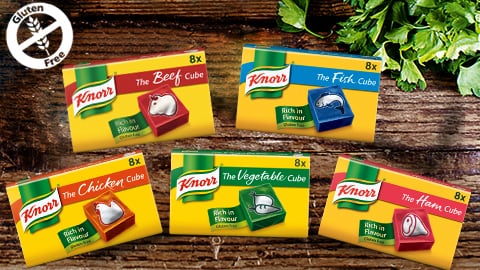Condiments consumed regularly like bouillon cubes have been put forward as a strategy against iron deficiency in regions like Africa, where the problem is rife.
Yet striking a balance between sensory and nutrition profile when fortifying with iron compounds can be a challenge.
Iron compounds with high bioavailability like ferrous sulphate (FeSO4) can reduce shelf life, induce oxidative rancidity noticeable to consumers and even turn leafy vegetables black when used in cooking.
Researchers from Dutch food giant Unilever and the Swiss Federal Institute of Technology in Zurich (ETHZ) investigated the food additive tetra sodium pyrophosphate (NaPP) as one way of upping the bioavailability of iron compound ferric pyrophosphate (FePP), which has lower absorption for humans than other compounds but a better sensory profile.
The researchers tested various combinations in vitro and in vivo with 24 iron-deficient Swiss women.
They tested FePP only, FePP and NaPP, FeSO4 only and FeSO4 and NaPP in a simple soup matrix.
They found adding NaPP into the mix formed soluble complexes and as a result upped bioavailability of the iron.
Iron bioavailability in humans increased by 46% when comparing bouillons fortified with FePP only and bouillons fortified with a FePP and NaPP combination.
Iron absorption from bouillons fortified with FeSO4 only and with FeSO4 and NaPP was 33.8% and 27.8%, respectively.
“Our findings suggest that the addition of NaPP could be a promising strategy to increase Fe absorption from FePP-fortified bouillon cubes, and if confirmed by further research, for other fortified foods with complex food matrices as well,” they wrote in the British Journal of Nutrition.
They said this was the first time the effect of NaPP on iron bioavailability had been investigated.
Unilever is now investigating longer term impacts in more complex foods in an ongoing trial in Nigeria.
According to the World Health Organisation (WHO) two billion people – over 30% of the world’s population – are anaemic.
This can be due to iron deficiency and in resource-poor areas this is often exacerbated by infectious diseases like Malaria and HIV/AIDS.
The organisation estimates that every second pregnant woman and about 40% of preschool children in developing countries are anaemic.
Skimming the surface
Yet senior scientist in nutrition at ETHZ and one of the researchers behind the paper, Dr Colin Cercamondi, said these stock cubes could not win the fight against iron deficiency alone.
"Compared to iron-fortified staple foods, such as cereals, the iron-fortified stock cubes cannot provide the same quantities of iron due to the limited amount of daily stock cube consumption," he told us.
"However, they could be the perfect complement to iron-fortified staple foods, as they have some unique advantages."
However Cercamondi said the advantage of the stock cubes was that they were used widely and could reach rural communities milling cereal themselves and therefore off the radar of state flour fortification programmes.
“Condiments are promising vehicles for fortification as they are among the very few regularly purchased food items in resource-poor areas, and iron-fortified

condiments have been shown to be efficacious in improving iron status,” his team wrote.
A past survey suggested the proportion of Burkinabe, Cameroonian, Nigerian, Senegalese and Ivorian women who consumed bouillon cubes ‘regularly’ ranged from 79–96%.
The estimated median intakes in women in these sub-Saharan countries ranged between 2.1 and 4.3 g and between 0.7 and 3.6 g per day in urban and non-urban areas, respectively.
The researchers calculated that in populations where the daily consumption of bouillon cubes was around 4 g a day per capita, cubes fortified with 2.5 mg iron could provide between 0.1 and 0.2 mg when fortified with FePP.
This would provide between 7 and 11% of the average daily requirements for iron for menstruating women over the age of 18.
This remained lower than the possible amount if fortifying with the problematic FeSO4, which would offer between 0.7 and 0.9 mg of iron and therefore between

48 and 58% of the daily requirements for this age group.
The race for the best enhancer
Swiss competitor Nestlé has also invested in overcoming the challenges of fortifying its stock cubes and other products with iron.
Earlier this month it published a paper in the Food Research International on using changes to pH, iron complexes and the binding of other micronutrients to minimise colour changes in fortified foods.
It began adding iron to its Maggi bouillon cubes and tablets sold in Central and West Africa in 2009 and estimates 80 million cubes are sold every day in Nigeria alone.
Unilever has been fortifying its Knorr cubes with iron since 2015.
Source: British Journal of Nutrition
Published online ahead of print, doi:10.1017/S0007114516002191
“Sodium pyrophosphate enhances iron bioavailability from bouillon cubes fortified with ferric pyrophosphate”
Authors: C. I. Cercamondi, G. S. M. J. E. Duchateau , R. K. Harika, R.van den Berg , P. Murray, W. P. Koppenol, C. Zeder, M. B. Zimmermann and D. Moretti
